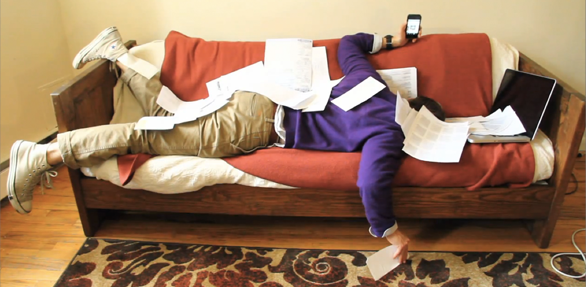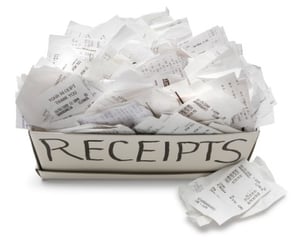By Amanda Keating on March 31st, 2016
Getting Down to Brass Taxes: An Interview with Tax Expert Rus Garofolo

Tax day is fast approaching: what’s a freelance artist or burgeoning arts organization to do? In anticipation of the IRS’s upcoming deadline, we sat down with Rus Garofolo, Founder of Brass Taxes, to discuss some key questions that arts organizations might want to consider in their tax prep.
Can you talk about the difference between a hobby and a business and why this is important for an artist or organization to understand?
A business is something you do even when you don’t feel like it. You have to be TRYING to make a profit, to sell. And if you’re not selling, then you have to be making new efforts. The IRS says you are a business if you are trying to make a profit, which is nice: it matters if you are TRYING, not just whether you are making a profit. Van Gogh never sold a painting but I think the IRS would have ruled that painting was his business.
People get caught up on the “you have to make a profit in 3 of 5 years rule” which is only 1 of many tests to determine if you are engaging in your activity as a business. Rarely do artists meet that test in the first five years. You’re still in business.
You are just a business that is currently running at a loss, like most businesses that are starting. You are gonna pay taxes when you make a profit so you might as well take advantage of the years you are running a loss. Those years of free jobs, spec jobs, etc. are what lead to the bigger paid jobs later.
If you do it when it annoys you, you are probably in business.
What do artists need to know about self-employment taxes (or payroll taxes)?
When you have a W-2 job, you pay half your Social Security and Medicare and your employer pays half. Self-employment tax is a boring name for paying the employee side and employer side of Social Security and Medicare taxes. Because you are self-employed, you are the employer and employee.
This is one of the main reasons jobs would rather pay you as a contractor than employee because it saves them about 7.5% in Social Security and Medicare payments.
You pay about 15% for self-employment tax on all your PROFIT. You don’t pay taxes based on what you get given, you pay tax based on what’s left over AFTER expenses. If you are self employed (1099, cash, checks, without taxes taken out) then you will pay income tax AND self-employment tax.
Self-employment tax starts once you have $400 of profit, and it adds up quick. If you have a $10,000 profit, you are below the threshold so you won’t owe income taxes but you’ll owe about $1500 in self-employment tax.
What kind of expenses can an artist write off? Can you talk about when it’s ordinary, necessary, and a reasonable amount and what those things mean?

It’s really different for every type of business. If you have tried to make your life one that you enjoy and your work something that you love, then you’ll have business expenses that you enjoy. So that can feel bullshitty to deduct, going to a museum, or going to the movies. But depending on your profession, those are reasonable expenses. Often I find people treat this differently based on their personality, some people are really aggressive and go overboard and others are too scared and don’t take what they are entitled to.
You should speak with a tax person who understands your industry to help with this sort of thing.
How can I deduct a home office as an expense?
You can deduct a home office if you have some square footage of your home that is EXCLUSIVELY used for work. So it’s never the living room, the kitchen table, etc. It needs to be a desk or a room that is ONLY used for work stuff. Don’t get crazy on this with how big an area you use; it really needs to be legit and ONLY used to make money.
Will forming a single member LLC help me save on my taxes?
Probably not. While creating a corporation or an LLC sure seems business-like, there are some downsides you should consider. NYC doesn’t recognize the existence of S corporations, so you’re taxed at a C-Corp’s rate (about 8%), which negates any tax savings from avoiding self-employment tax on your non salary distribution. S corporations, partnerships, and non-solely owned LLCs also require another tax return, further reducing your savings.
The primary reason to form one of these entities is if you’re worried about being sued, as it reduces liability. However, if your business doesn’t come with that kind of risk, here’s a worthwhile alternative to consider: set up a DBA (Doing Business As — about $90), get an EIN (Employer Identification Number — free!), and buy insurance if you’re still a little concerned about liability. DBAs still allow you to write and receive checks as a company, without the tax hassle. If you have a partner, one can own the company, and have a good contract written up and split your profit any way you decide.
How do I determine if someone is an employee or an independent contractor?
There are a series of tests to look at. If you are cool with them contracting out what you are paying them for, you aren’t telling them how to get it done, they aren’t using your equipment, stuff like that: sounds like a contractor. If you tell them when to come in, they specifically have to do the job themselves, they use your equipment, you tell them how to do their job, they sound like an employee.
What kind of advice do you have for keeping accurate records?
I think it’s easiest to keep physical receipts. I, in theory, like having everything in a spreadsheet but I don’t actually use it effectively. I think any system of keeping records is good if you’ll save a $3 receipt. If you don’t feel like saving a $3 receipt then your system is too complicated. I have hundreds of clients using the following system. Clip together some envelopes; write an expense category on each envelope. When you buy something, if it’s for business, put the receipt in your wallet, when your wallet gets awkwardly full, put it right in the expense category. If you buy something online, rip off a scrap of paper, write what you bought, when, where and how, and throw that in the envelopes.
At the end of the year, pull everything out of supplies, add them up and write that on the envelope. Put the receipts back in to the envelope; move on to the next envelope.
Meals are the only one where you should make a note on the receipt of who you with and what the profit motive of the meal is. The IRS will always say you are just eating because you are a human and you have to be able to prove that “no, no, no, this meal wasn’t about eating it was about meeting with this producer to try and get my movie made so I could make more money and thereby pay more taxes”.
Don’t go crazy on this category, it’s often abused. Eating with your writing partner is not a business meal. You are just eating while you are working.
Any other advice to artists as they’re gearing up to file their taxes?
If you have untaxed income I think you should see a tax person for help. They should be able to save you more than they cost OR stop you from doing something you may regret in the future because the rules are confusing. If your tax person can’t explain what you need to know and make you understand this stuff, then they aren’t good at communicating or don’t understand it themselves. You should go somewhere else.
About Rus Garofalo and Brass Taxes
I started Brass Taxes in 2008 when I randomly worked for a tax preparer. I was working as a video editor as my day job and working on writing and performing. I realized I was doing my taxes badly and so here my friends. It annoyed me that I didn’t know this and that it was costing me money when I didn’t make very much. It seemed you could only get quality advice and attention if you already had a lot of money to pay for it. I thought that sucked.
The guy I worked for, Harvey Zirofsky, was a good mentor and encouraged me to take classes and I started working for him and then went on to take more classes and became an Enrolled Agent in 2013. It’s an IRS accreditation.
Everyone who works at Brass Taxes has been, or probably still is, a freelancer in the off season. We all come from artistic backgrounds and are good at explaining tax things so you know what you need to take charge of and what you don’t need to worry about.
